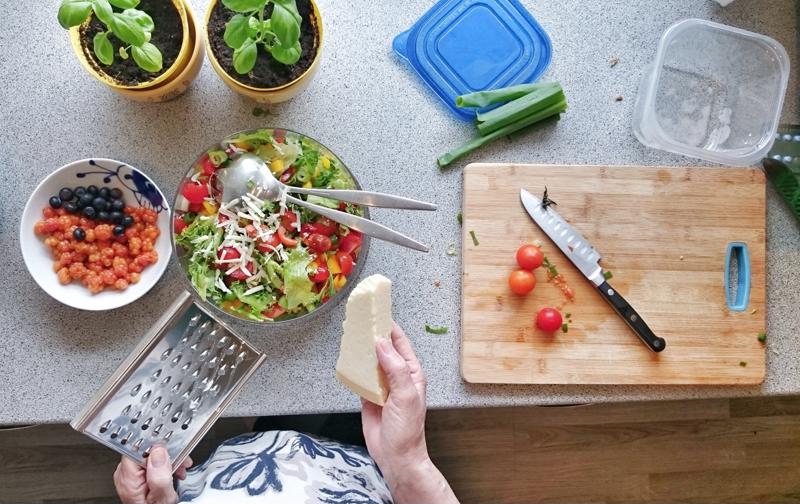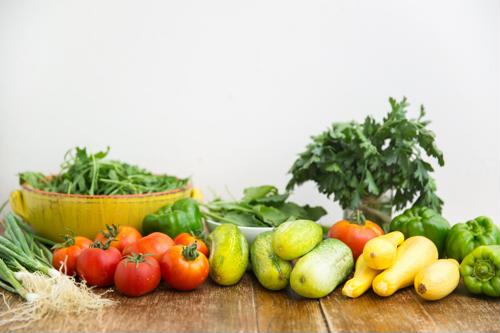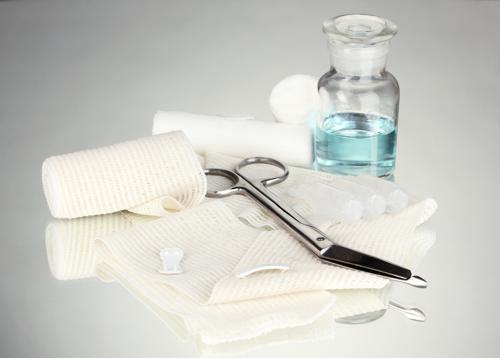The doctor’s orders are frequent cleaning and dressing changes, adequate rest and checking in if you notice anything abnormal – but what about food? What you eat can impact the rate of recovery because good nutrition is necessary for proper healing.
According to the Cleveland Clinic, our bodies need more calories, protein, vitamins and sometimes zinc to promote healing and prevent infection. You can get a healthy boost from power foods with sufficient amounts of these necessary elements.
Follow these nutrition tips to accelerate wound healing:
 Good nutrition facilitates wound healing.
Good nutrition facilitates wound healing.Maintain a healthy variety
The goal of a wound healing diet is to eat a variety of foods that give you the calories, proteins, vitamins and minerals your body needs. Alberta Health Services recommended focusing on four food groups: fruits and vegetables, grains, milk and meat. The Cleveland Clinic advised the following minimum amounts of foods to maintain a healthy variety each day:
- Fruits and vegetables: 2 servings each
- Grains: 5 servings
- Milk: 3 servings
- Meats and beans: 5 servings
- Oils, fats and sugars: Limited servings
Remember that if you have diabetes, you’ll want to keep this variety up while still maintaining healthy blood sugar levels. Don’t hesitate to talk with your doctor or dietitian for a more personalized wound healing diet plan.
Choose power foods
Among the best foods for wound healing are proteins such as:
- Meat, poultry or fish
- Tofu
- Beans
- Eggs
- Milk
- Cheese
- Greek yogurt
- Soy nuts
- Soy protein products
According to the Cleveland Clinic and Alberta Health Services, power foods high in vitamin A and C include:
- Citrus fruits and juices
- Strawberries
- Cantaloupe
- Tomatoes
- Peppers
- Carrots
- Spinach
- Broccoli
- Cauliflower
- Dark leafy greens
- Liver
To mix up the dark leafy vegetables on your plate, Healthline suggested the following power greens:
- Kelp
- Kale
- Bok choy
- Spinach
- Parsley
- Green beans
- Alfafa
Foods high in zinc that can promote healing include:
- Fortified cereals
- Seafood
- Meat
- Eggs
- Nuts and seeds
Fisher Titus Medical Center further advised avoiding the empty calories in processed foods, refined grains and sugary products. It’s also a good idea to refrain from soda and alcohol and focus instead on healthier fluids during your recovery.
Drink plenty of fluids
You’ll want to stay hydrated to promote the healthy skin that facilitates wound healing. While water is the superior liquid, milk, soup, tea, coffee and natural juices are also healthy options.
Along with following a healthy wound healing diet, talk to your doctor about Innovative Outcomes iPAK for intelligent delivery of the wound care products your treatment requires. With good nutrition and proper dressing changes, you’ll be on the road to an accelerated recovery.





